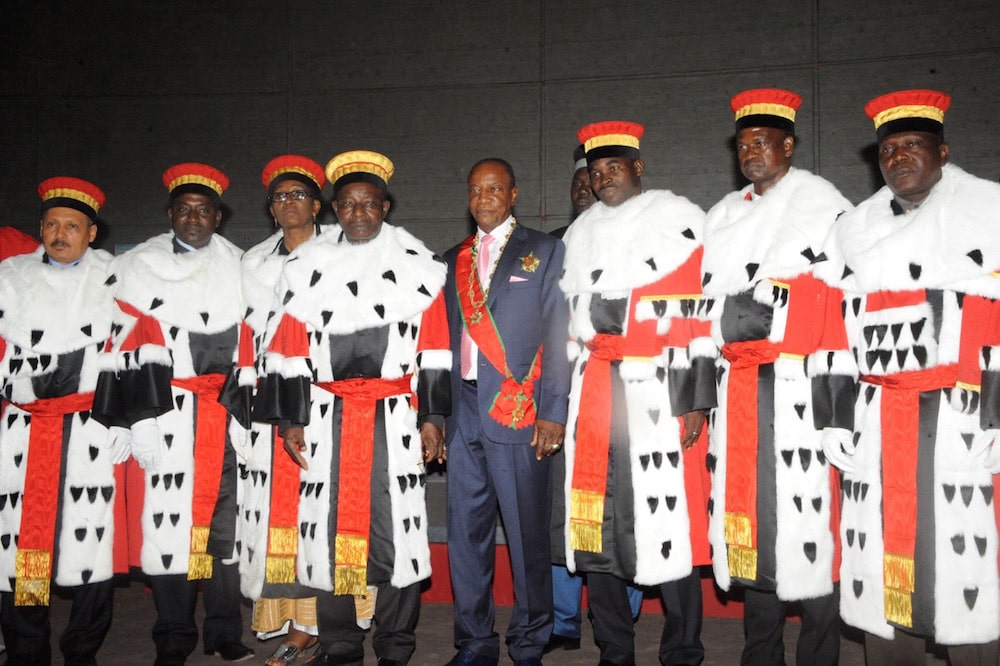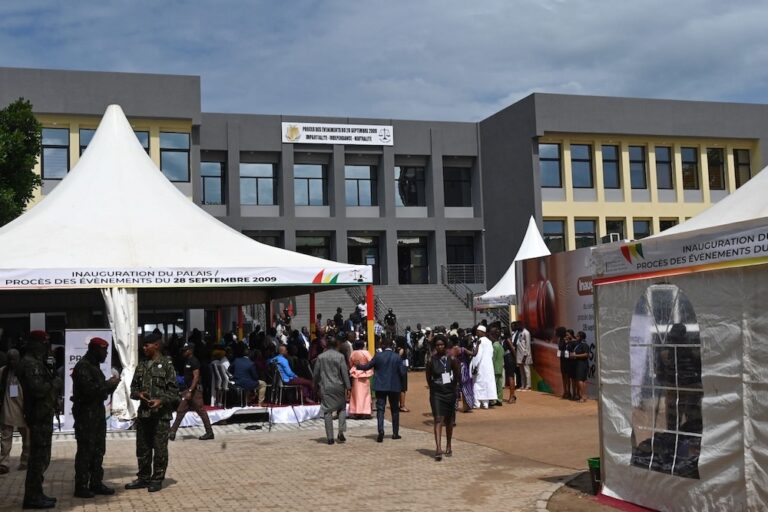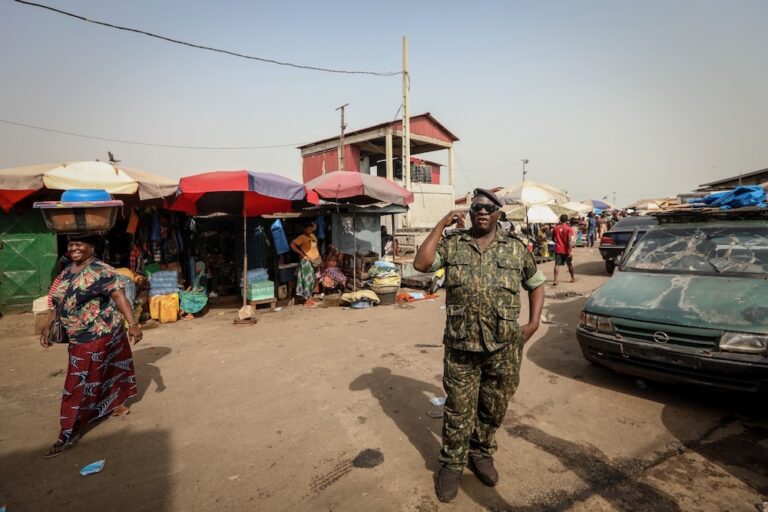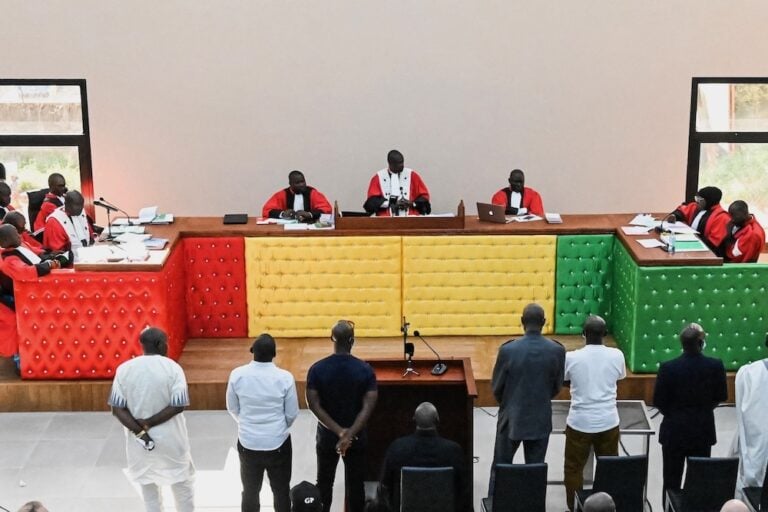Diallo was finally released after nearly three months in prison on a charge of insulting President Alpha Condé although Guinea has decriminalised press offences.
This statement was originally published on rsf.org on 19 May 2021.
Reporters Without Borders (RSF) welcomes Guinean journalist Amadou Diouldé Diallo’s release today after nearly three months in prison on a charge of insulting President Alpha Condé although Guinea has decriminalised press offences. The Guinean authorities must stop detaining journalists arbitrarily, RSF said.
A reporter for state-owned radio and TV broadcaster RTG, Diallo was finally freed after a court in the capital Conakry today fined him 5 million Guinean francs (420 euros) for “insulting the Head of State,” the charge on which he had just spent 81 days in detention. He was convicted for comments about the president and ethnic violence in Guinea that he made on privately-owned Radio Lynx FM on 27 February.
Detained ever since his arrest that very same day although Guinea abolished prison sentences for press offences in 2010, Diallo continued to be held even after a hearing on 13 April when the fine of 5 million Guinean francs was the only punishment requested by the prosecution.
As Diallo was in poor health, he was transferred from prison to the rheumatology section of Conakry’s Ignace Deen Hospital on 2 March, but the conditions in which he was held in the hospital were very harsh, as RSF confirmed when it visited him there during a visit to Guinea in April. He was returned to prison on 26 April, two days before the date set for his trial, which was postponed because Guinea’s lawyers were on strike.
“It is with relief that we welcome the end of this journalist’s imprisonment, which should never have occurred in the first place because Guinean legislation has abolished prison sentences for press offences,” said Assane Diagne, the director of RSF’s West Africa office. “Amadou Diouldé Diallo was detained arbitrarily for more than 80 days for nothing more than an appearance in a radio programme. It is high time that the press law adopted in 2010 is finally respected, and that the authorities stop imprisoning journalists just for doing their job.”
Diallo’s release comes after a series of actions on his behalf by RSF. During a visit to Conakry, RSF met with information and communication minister Amara Somparé on 8 April and called for Diallo’s immediate release. A memo with RSF’s recommendations on how to improve press freedom in Guinea was also given to the minister.
The same week, RSF and the International Sports Press Association (AIPS) issued a joint call for Diallo’s immediate release and for the Guinean authorities to respect the country’s law decriminalising press offences.
In Guinea, journalists are often taken into police custody or jailed in connection with their work. On 4 February, the sports journalist Ibrahima Sadio Bah was sentenced to six months in prison and a fine of 500,000 Guinean francs (40 euros) on a charge of defaming the head of the Guinean Football Federation (FEGUIFOOT), Mamadou Antonio Souaré. After more than three months in prison, Bah was finally freed on 11 May following a series of campaign actions on his behalf.
Guinea has fallen 24 places in RSF’s World Press Freedom Index since 2013 and is now ranked 110th out of 180 countries.



